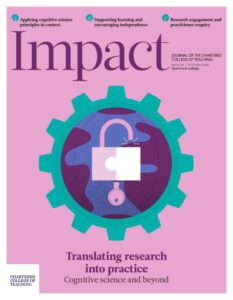George Davies-Craine, Subject Leader for Geography and Digital Learning Lead, Dr Challoner’s Grammar School, UK
Learning and revision: An introduction
Cognitive science has shown that regular testing of students’ knowledge is one of the most effective methods of learning and revising material for assessments (Dehaene, 2020; Dunlosky et al., 2015). While the process of revising is retrieving information from memory and checking understanding (Jones, 2019), there is a variety of alternative revision techniques for students, such as summarising and mnemonics, yet only some support deep, long-term learning and understanding of material. Brown et al. (2014) argue that learning information requires not only for it to be recalled, but also for it to be understood in relation to other information. Dehane argues that ‘learn[ing] is to form an internal model of the external world’ (2020, p. 5); over time, we adjust our internal model in relation to new information, reducing the numb
Join us or sign in now to view the rest of this page
You're viewing this site as a guest, which only allows you to view a limited amount of content.
To view this page and get access to all our resources, join the Chartered College of Teaching (it's free for trainee teachers and half price for ECTs) or log in if you're already a member.











